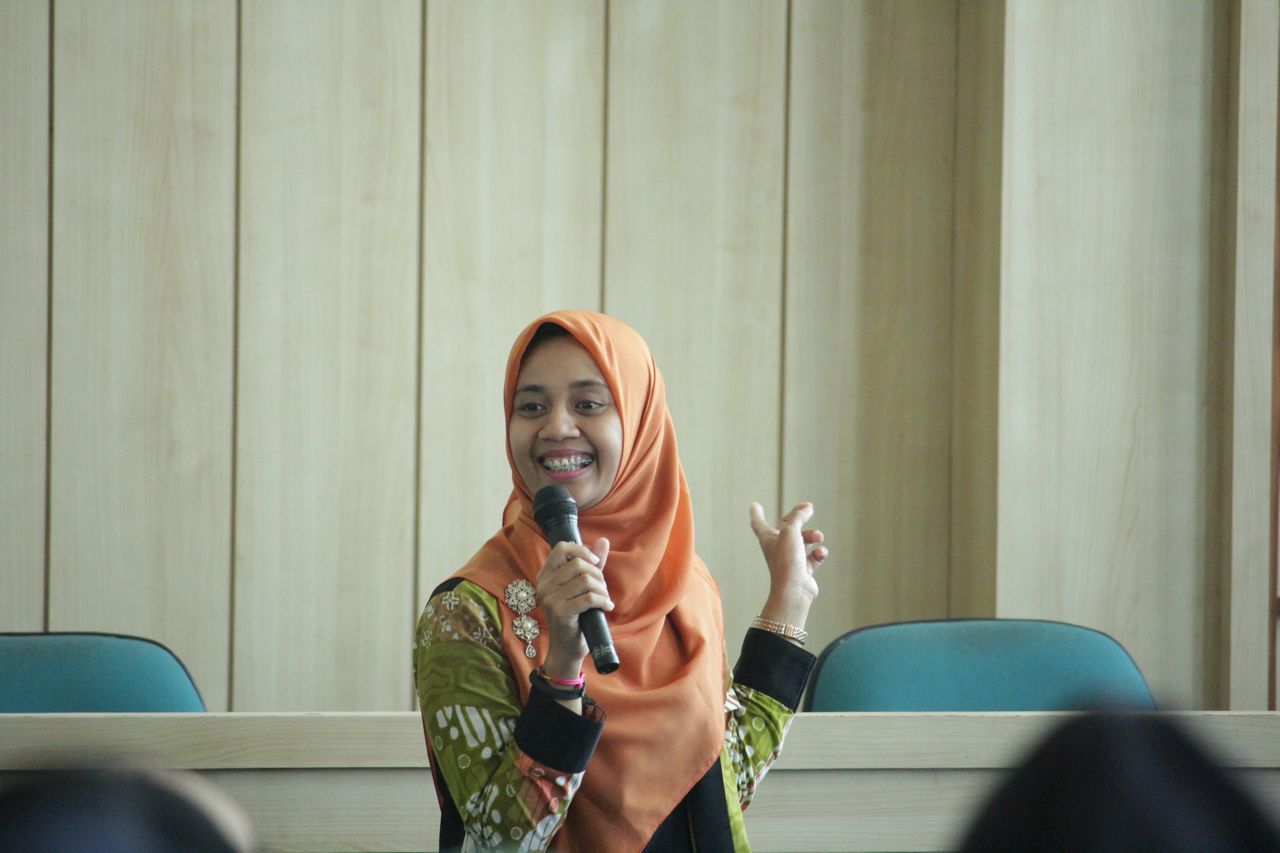Vocational Program of Accounting of Universitas Muhammadiyah Yogyakarta (UMY) conducted an expertise class about audits in public sector. The class entitled “Regional Seminar on Public Sector” was held on Friday (26/4) at Auditorium of K.H. Ibrahim Building of UMY.
Secretary of Vocational Program of Accounting of UMY, Desi Susilawati, S.E., M.Si., CTA stated that the expertise class was purposed as an insight of enrichment for students completing theories in classes through an actual implementation in working worlds. “The knowledge we gain in practices is easier to permeate than theories in classes. This session will bring a good opportunity for students after they graduate from the university. Students, in fact, should possess abilities to provide recommendations in handling cases,” informed Desi.
The expertise class invited Dhani Astuti, a young auditor Inspectorate of Yogyakarta. Dhani shared her experience as an auditor in the public sector. She conveyed, “Audits in public sector is an examination through several processes, namely problem identification, analysis, and evaluation based on applicable standards that prevails to examine management and responsibility of state finances. This action is usually performed by the Supreme Audit Agency (BPK) or Inspectorate in regional governments. Their main task is to become professional and competent auditors as a part creating good and clean government. In the Inspectorate, I perform supervisory activities, namely audit of certain financial aspects, examination of performance, audit of specific objectives, provision of consulting services, and others.”
She continued, “The audits will result a specific report with an element that explains the objects. The objects include a condition containing fact documents, interview results and physical evidences, assessment criteria based on the law, and standards or indicator performance. Departing from these objects, we later conduct an examination to cohere those elements. If the condition fits the criteria, the examination is done. However, if the condition does not fit the criteria, the report should include an element of cause, marked by factors that cause nonconformities, followed by an element of effect, a recommendation of improvements, and a response of audited parties. The result of audits becomes a reference to conduct a follow up action.”
Dhani also mentioned that she experienced several nonconformities in the public sector. “If I find nonconformity in an administration, for instance in a documentation that causes no deprivation, we recommend conducting correction and administrative punishment. However, if there is a deprivation, marked by several actions such as fictitious expenditure or procurement of goods or services and mark-up practices, we recommend the parties to pay compensations. Generally, we demand the parties to re-deposit the lost funds,” ended Dhani.







